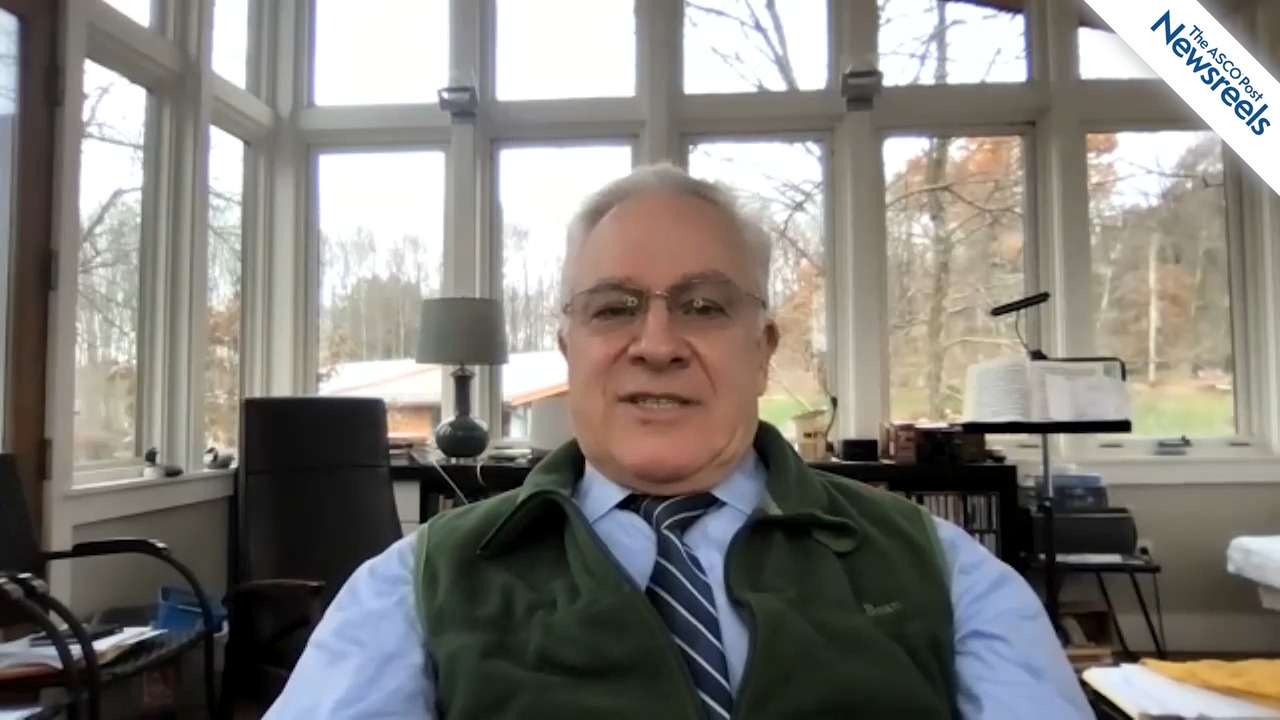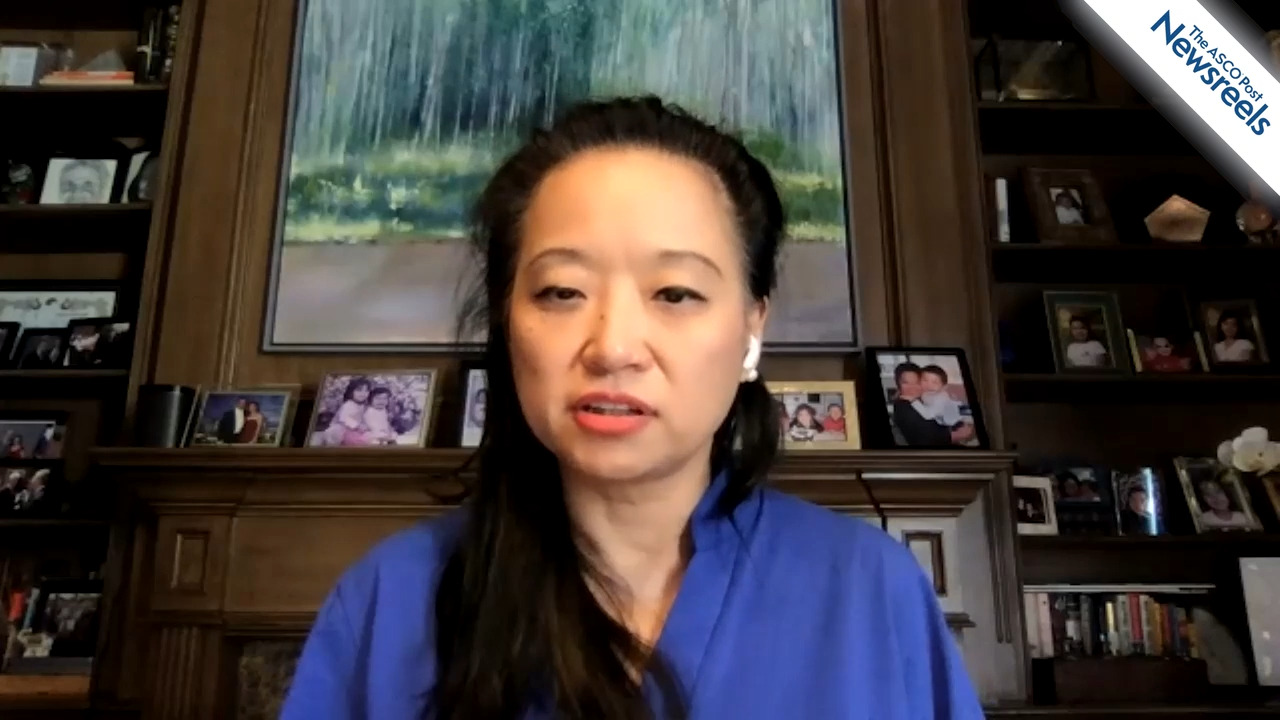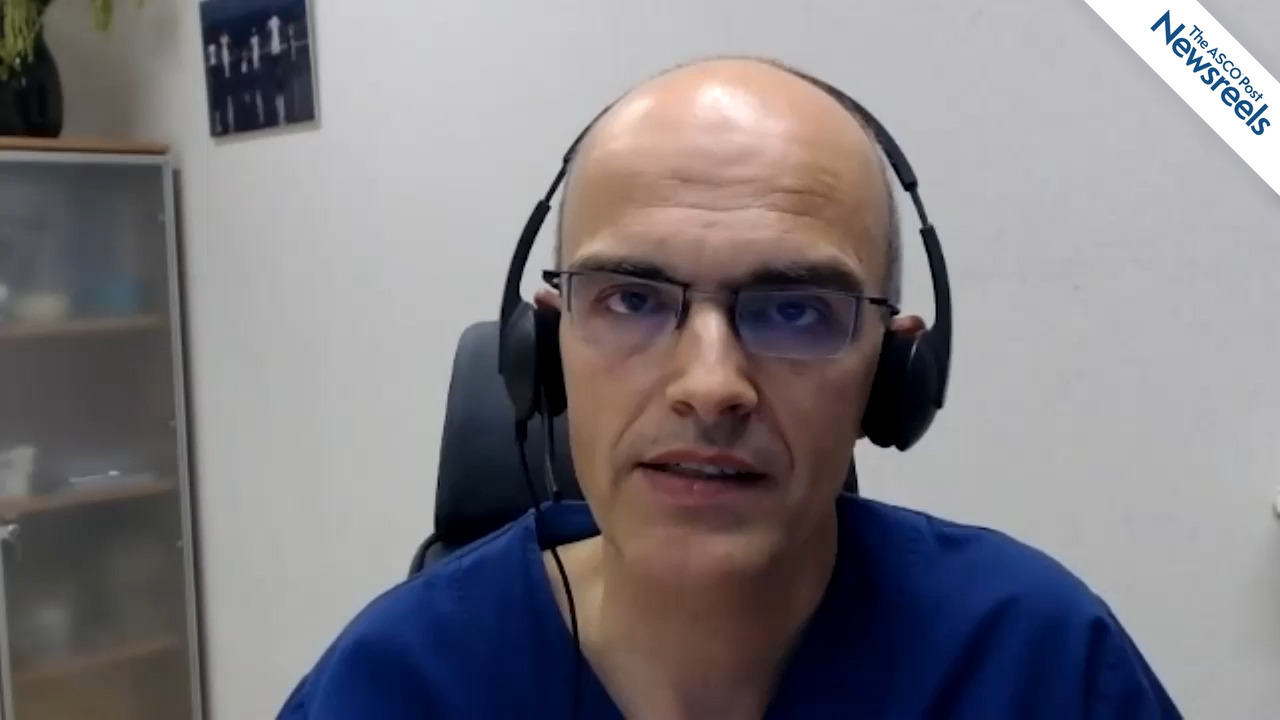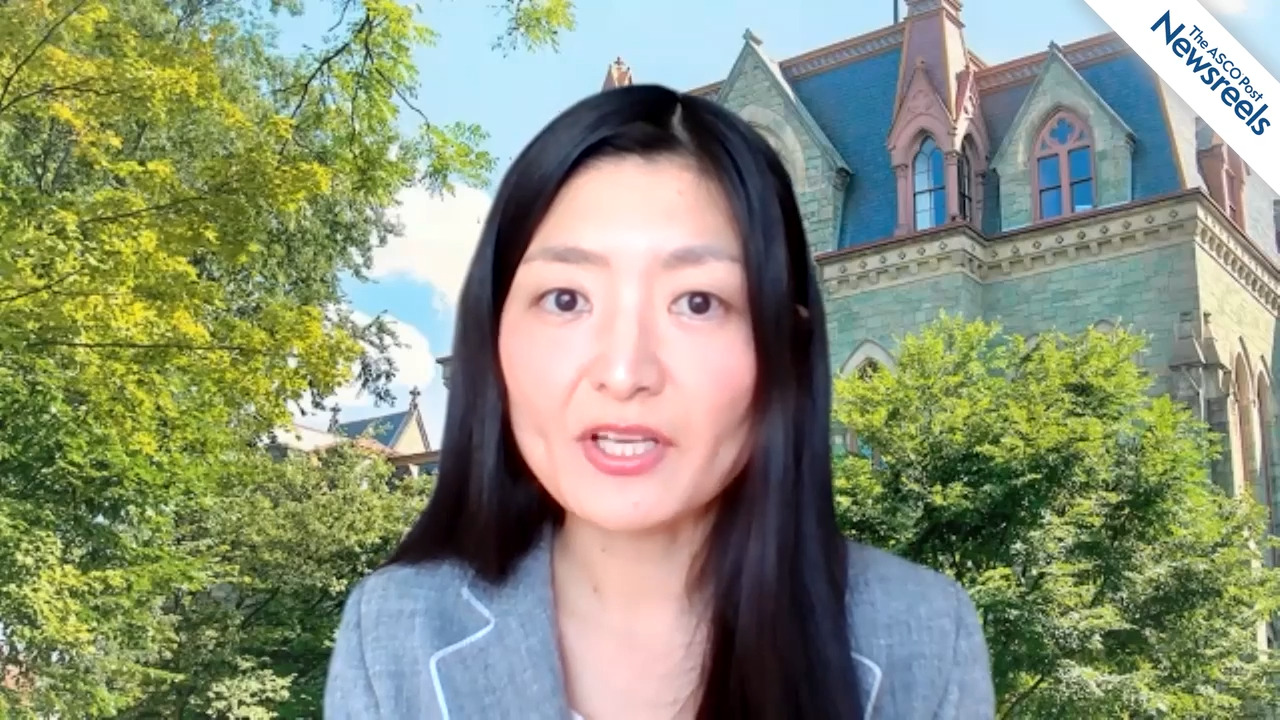Yevgeniy R. Semenov, MD, on Cutaneous Immune-Related Adverse Events and Response to Immune Checkpoint Inhibitors
SITC 2021
Yevgeniy R. Semenov, MD, of Massachusetts General Hospital and Harvard Medical School, discusses new findings suggesting cutaneous adverse events such as vitiligo, lichenoid dermatitis, and psoriasis—which often occur in patients with cancer who receive immune checkpoint inhibitors—may be strongly associated with response to therapy and a 22% reduction in mortality (Abstract 814).
The ASCO Post Staff
Hannah E. Dzimitrowicz, MD, of Duke Cancer Center, discusses study results showing that in patients with melanoma and renal cell cancer receiving immune checkpoint inhibitor therapy, the COVID-19 vaccination appears to be well tolerated and safe. A higher rate of post-vaccination symptoms reported in these patients is likely related to more frequent visits compared with controls (Abstract 625).
The ASCO Post Staff
John M. Kirkwood, MD, of the University of Pittsburgh Medical Center, discusses phase Ib findings on the combination of vidutolimod plus pembrolizumab, as well as vidutolimod monotherapy, both of which showed clinical activity in patients with PD-1 blockade–refractory melanoma. The duration of response with the combination therapy was substantially longer. Phase II studies are ongoing (Abstract 950).
The ASCO Post Staff
Lynda Chin, MD, of the University of Texas, Austin Dell Medical School and Apricity Health, discusses precision medicine, barriers to its progress, and the challenges that must be met to facilitate better outcomes for patients. Building evidence and trust is key, Dr. Chin explains, as is developing an infrastructure that allows more clinicians to take part in the process.
The ASCO Post Staff
Hans Wildiers, MD, of University Hospitals Leuven, discusses the final results from the phase IIb AIPAC study, which suggested that eftilagimod added to paclitaxel may be of benefit to patients older than 65 years with hormone receptor–positive, HER2-negative metastatic breast cancer after endocrine-based therapy. Eftilagimod, which is a first-in-class antigen presenting cell activator, appeared to increase circulating CD4/CD8 T cells, which correlated to improved overall survival (Abstract 948).
The ASCO Post Staff
Yuki Muroyama, MD, PhD, of the University of Pennsylvania Perelman School of Medicine, discusses the interaction between the immune system and a novel marker—T-cell DNA damage and repair response—to understand how that interaction may affect immune cell biology and therapeutic response (Abstract 310).





